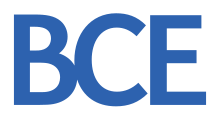Antivirus, firewall, antispyware, and antispam protection
It’s important to be proactive and protect yourself from security threats when on the internet. A computer that’s not protected is exposed to many security risks. These include viruses, Trojan malware, worms, spyware, hacker attacks, spam, inappropriate content, and more.
These threats can cause you to lose files, slow down your computer, infect your computer with a virus, and even steal your personal information.
We recommend you protect yourself by doing the following:
- Install and regularly update antivirus software.
- Install and use a software-based personal firewall.
- Install antispyware software.
- Use tools to prevent spam.
- Install the latest recommended updates (including security updates) for your operating system and apps.
Important Antivirus software protects your computer against viruses. A firewall protects your computer against other types of internet threats such as hackers, worms, and Trojan malware, which can’t be fully detected by antivirus software. Conversely, a firewall doesn’t necessarily protect your computer against all types of viruses. Install antivirus, firewall, and antispyware software, and use tools to prevent spam as a minimum level of protection.
Here's an overview of how to protect yourself using antivirus, firewall, antispyware, and spam control tools.
Antivirus software
Without antivirus software, viruses can infect your computer. A computer virus attaches itself to, overwrites, or replaces another app to reproduce itself without your knowledge. This may quickly use all your computer’s available resources to drastically slow it down or bring it to a complete stop. Viruses can also damage files, delete files, and make your information unreadable.
To protect yourself, install and regularly update your antivirus software.
Firewall
A firewall protects you against hackers and malicious software. Hackers are constantly looking for ways to access computers to steal personal information, passwords, and files. They can use malware such as Trojans and worms to take control of your computer.
To protect yourself, install and regularly update your firewall software.
Antispyware software
Without antispyware software, spyware and adware can infect your computer.
Spyware tries to collect your personal information without your knowledge. It can send your personal information to whoever installed it on your computer.
Adware are small pieces of software that track your internet surfing habits. It uses this information to send you advertisements based on what it thinks your interests are.
In addition to these risks, spyware and adware can use your computer’s resources, which can cause your computer to crash.
To protect yourself, install and regularly update your antispyware software.
Spam control
Spam control protects you against unsolicited commercial email, better known as spam or junk mail. Spammers can send out millions of messages causing the amount of spam to continually rise. Examples of spam include messages that try to sell you a product or service. These messages may try to get personal information from you or have links to malware that can spread viruses.
Your Northwestel email includes spam control. Our system examines all incoming email for certain things that indicate spam content and prevents it from getting to your inbox. It uses advanced recognition technology to identify what’s spam and what isn’t.
Sometimes, spam might slip through the spam control system and make it’s way into your inbox. For another level of protection, you may also want to install antispam software and set up mail filters in Northwestel Webmail settings.
